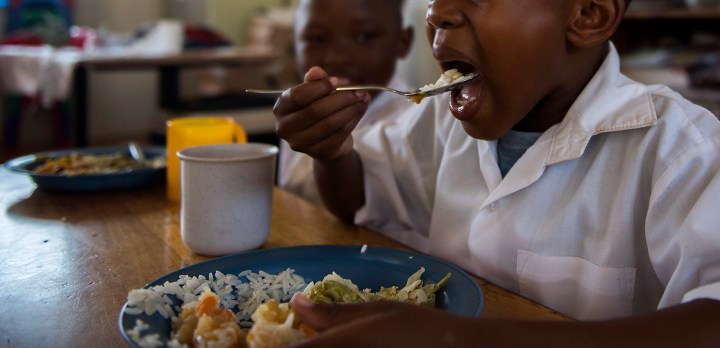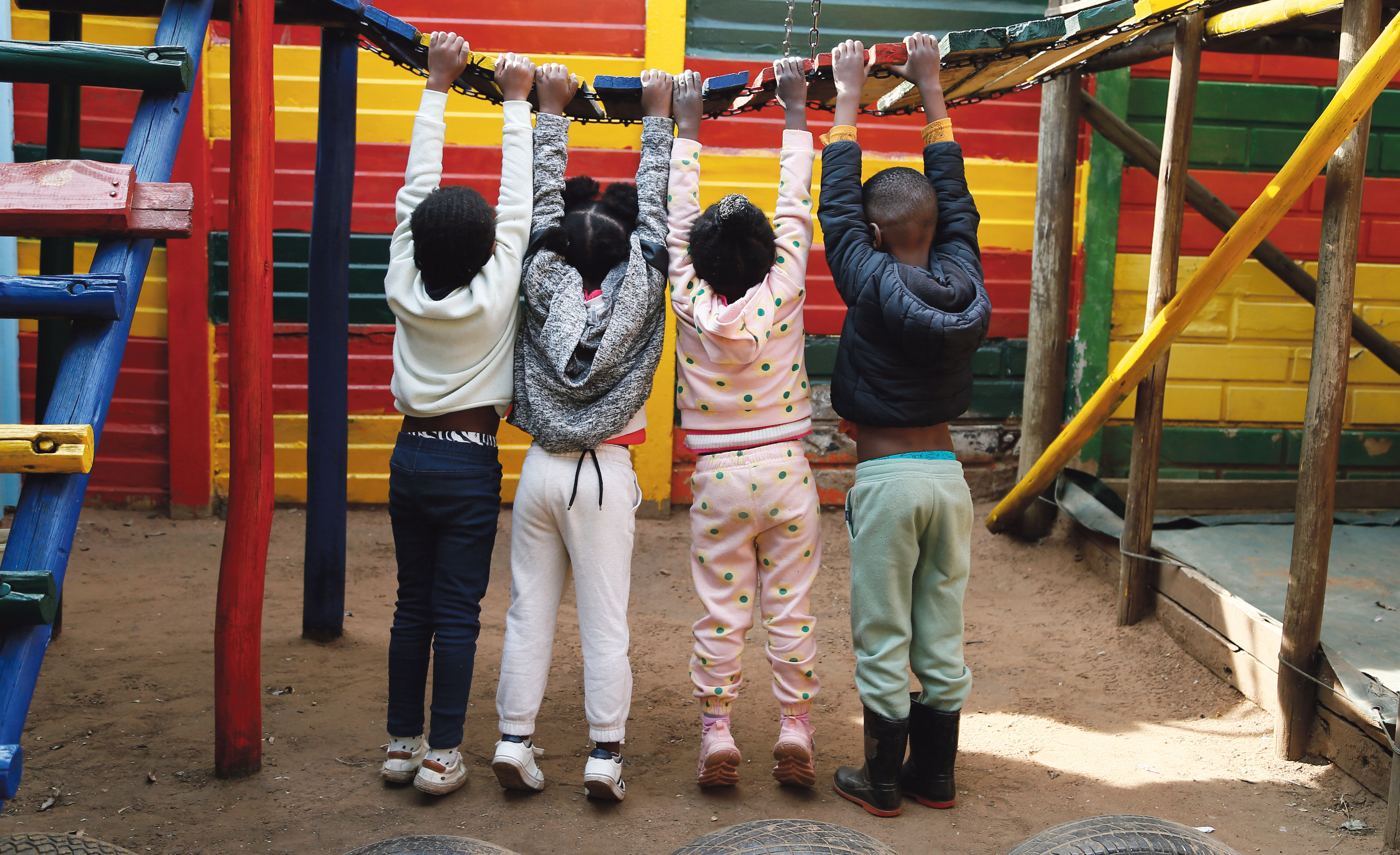CHILD DEVELOPMENT OP-ED
Nutrition support for ECD programmes takes a giant step backwards

The Gauteng health department has been a shining example of ensuring that young children who need it access essential nutrition support. Until now.
In 2023, the Real Reform for Early Childhood Development (RR4ECD) movement launched a research initiative advocating for the right to nutrition. This campaign, after comprehensive legal analysis, asserts that access to basic nutrition for a young child is a right, not just a need.
RR4ECD’s coordinator, Tshepo Mantje, made this plea: “[W]e want the DBE to establish a national ECD nutrition programme that guarantees nutritious meals to all eligible children at all early learning programmes, regardless of their registration status.” Early learning programmes include ECD centres, creches, preschools and playgroups.
Unfortunately, recent actions by the Gauteng health department – which until now commendably supported unregistered ECDs with nutrition assistance – have regressed, now limiting support solely to registered ECD providers. Abram Kgari from the Diepsloot ECD Forum describes this as “not punishing ECD practitioners, but the thousands of children we take care of”.
Children require comprehensive support to meet their developmental needs: adequate nutrition, early learning, healthcare, safety and caregiver support. Nutrition is one of the areas where South Africa is notably underachieving. With one in four children under five experiencing stunted growth due to chronic undernutrition, the role of early learning programmes (ELPs) becomes even more crucial. While nutrition support in ELPs won’t solve all challenges – especially since interventions in the first 1,000 days are vital – there is evidence that physical and cognitive catch-up is possible between the ages of three and six years.
RR4ECD has outlined in its synthesis report of three research papers that informed the Right to Nutrition campaign, that “ELPs offer an ideal opportunity for the DBE to take a targeted, coordinated approach towards meeting [young children’s] nutrition needs and, as important, towards meeting its duty to fulfil their constitutional right to basic nutrition”.
The Department of Basic Education (DBE) acknowledges the importance of this issue in South Africa’s 2030 Strategy for Early Childhood Development Programmes, committing to ensure “appropriate nutrition provisioning in all ECD programmes” by 2030 (emphasis added). This commitment includes finalising a nutrition strategy by the end of 2024 and highlights the necessity of effective collaboration with the Department of Health. The DBE also has funding for a nutrition pilot to support ECD programmes which is supposed to be rolled out this year.
Until now, the Gauteng health department has been a shining example of ensuring that young children who need it access essential nutrition support. This funding was conditional on having a health and safety certificate (ensuring the site is safe for young children), an NPO certificate and being registered on the department’s database. This funding was renewed annually with the department. This year, when it came to renewing the annual service-level agreements, ECD providers were informed that they now need to be registered with the Department of Basic Education to get nutrition support.
RR4ECD asserts that all eligible children – those receiving child support grants – should have access to government-provided nutrition support, regardless of the registration status of the early learning programme. RR4ECD’s position is most recently outlined in the People’s Manifesto for Early Childhood Development.

Toddlers play at the Little Learners Creche in Roodepoort, Gauteng, on 16 August 2023. (Photo: Felix Dlangamandla)
An unregistered ECD programme is one that is not registered or conditionally registered under the Children’s Act. Crucially, DBE registration cannot be a condition upon which to receive the support. The registration system’s flaws have been documented here and here, with the Nelson Mandela Foundation noting that Gauteng has the highest number of unregistered ECD programmes in the country – 57% of early learning programmes in that province are unregistered. Some ECD practitioners have been waiting more than three years to get their registration.
Until these systemic issues are resolved, registration should not be a prerequisite for receiving nutrition support. We must now, more than ever, maintain the current levels of support.
Kgari, deeply concerned about the latest move from the Gauteng health department, explains that “the government has developed a strong hatred for children”.
Cecilia Mkhabela, founder of the Lindokuhle ECD, laments: “Of all the things they saw fit to do, they saw it fit for children to go hungry. I am wondering who made this decision. Did they ever think of the children?”
We implore the Gauteng health department to reconsider its decision and continue supporting ECD programmes across Gauteng, regardless of their registration status, thus truly prioritising children’s well-being and developmental needs.
We also urge the Department of Basic Education to publish its plans for a ECD programme nutrition pilot this year. DM
Tess Peacock is the founding director of the Equality Collective, which coordinates the Real Reform for ECD movement.





A cruel move, for sure. makes no sense. the writer must be applauded for raising this crucial matter in the public domain. There remains some uncertainty though: “With one in four children under five experiencing stunted growth due to chronic undernutrition, the role of early learning programmes (ELPs) becomes even more crucial.” The overriding point is – a hungry child quite literally struggles to learn, in the first place. And a perpetually hungry child may loose the ability to learn altogether.
Blue lights and Lesufi’s legions need funding from somewhere…
We need nutrition because children need energy
All ECD in south africa need support on daily maverick nutrition support for ECD and early learning programme including ECD centre creates, preschool and playground as the children for south africa need energy during daycare